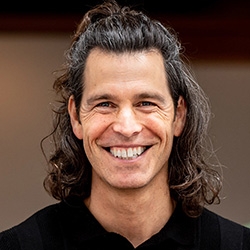

Search Results: support
-
Distinguishing between needs and strategies to meet needs is crucial for solving conflict. For example, the need for peace can be met through various strategies beyond solitude or gratitude. Similarly, sex is a strategy. Sexual expression is the need behind it, and can be met in various ways to meet that need without having sex itself. Such flexibility can foster creativity and deeper connection, enhancing relationships.
-
Yoram Mosenzon explores the core NVC principle that others do not cause our feelings—our interpretations and unmet needs do.
-
Dear friends,
As we move toward the close of this year, I find myself reflecting on the many seasons we have shared together. Years of learning, growing, stumbling, recommitting, and discovering new ways to bring compassion and courage into our lives. You have been part of this journey with me, and I carry deep gratitude for every step we’ve taken together.
-
A challenge is an expansion of making a clear, positive doable request — and, when given, the person feels deeply seen by the challenger. A challenge isn't just about getting someone to take action on something important to them; it's a fierce form of empathy that supports people in connecting with their life force, and integrates it into their lives with action. A real challenge is tied to the receiver's goals, passions and dreams -- and expands their potential.
-
When we are completely involved in an activity for its own sake we are in engagement. Here, the ego falls away and time flies. Every action, movement, and thought follows inevitably from the previous one. Our whole being is involved, and we're using our skills to the utmost. Read on for activities that could stimulate engagement, a list of subjectively experienced elements of engagement and a list of what supports engagement.
-
Yoram Mosenzon suggests that when we make positive language requests, we tell people what we want. We give them an image of what would make life more wonderful. What we usually do is tell people what we do not want. This tends to create resistance.
-
Duke Duchscherer shares that Restorative Circles have the ability to transform relationships. Groups may start with feelings of worry, anxiety, fear, anger, and even hatred. The dialogue process supports a shift to more ease, connection, and trust.
-
Building relationships happens through dialogue and understanding the deeper meaning behind the words spoken. It’s about active listening that focuses on feelings and needs so you may truly comprehend the speaker’s message. In this video, Duke introduces two components of communication and how the restorative dialogue process supports mutual understanding.
-
Hearing "no" can bring emotional pain, but it can be delivered in a way that minimizes discomfort. We can find the gift in the request, express feelings and needs instead of saying "no," and offer an alternative solution that supports all parties. This approach fosters honesty, respect, and understanding, while setting boundaries if necessary to protect oneself. Clear communication reduces the likelihood of conflict.
-
-
-
-
-
-
-
-
Sylvia Haskvitz shares NVC basics to help you improve understanding and connection.
-
NVC trainers discuss intrinsic needs in addiction and its alignment with 12-step programs.
-
Ask the Trainer: Dealing with judgments about you when the speaker's true unmet need is hidden.
-
Learn how clarifying the needs behind ‘shoulds’ can ease conflict, grief, and family challenges.

Quick Links
Subscription Preferences
Stay In Touch!
Looking for ways to keep up with NVC Academy news, get special offers, free resources, or words of inspiration? Here are five ways to stay engaged:












